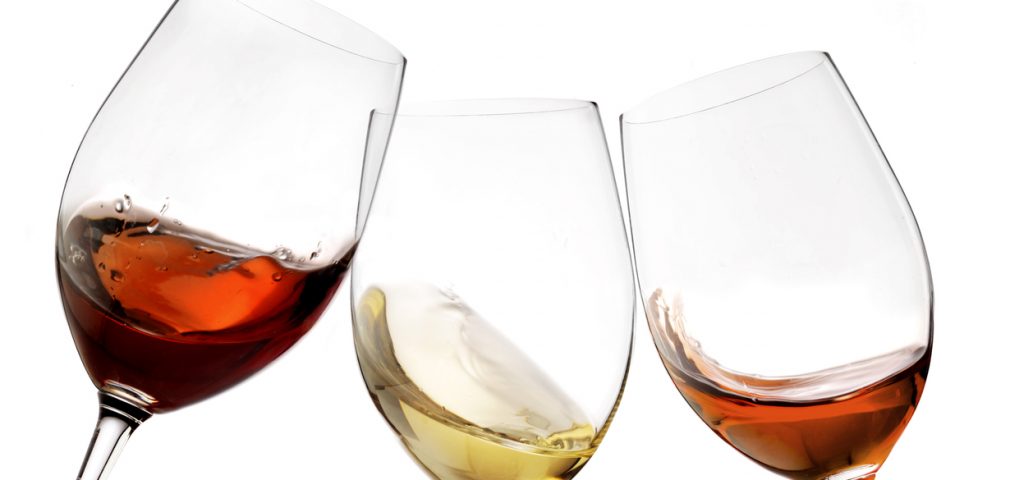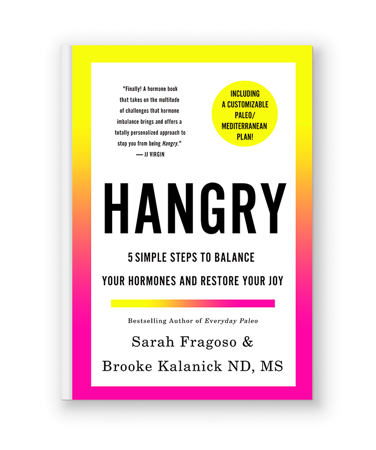
How Alcohol Affects Your Female Hormones & Metabolism
Wine, cocktails, good times, girlfriends, relaxation, summer fun, Holiday cheer – they all conjure up good times and put a smile on most of our faces….it’s called HAPPY hour after all!
Since it’s synonymous with fun, it is no wonder why most women are wondering how much booze they can get away with and stay healthy and maintain their weight. As a wine lover myself, I really, really want to tell you this article is going to end with advice to drink as much wine as you want and have optimal hormonal balance and the easiest time losing weight….unfortunately, it’s not that simple.
When it comes to hormone balance some things are clear such as an increased risk of breast cancer but it’s not quite as straight forward as some experts espouse. And the alcohol–weight loss question isn’t one that is easily answered based on research alone and when see some of our role models raising a regularly scheduled glass while staying lean, fit and seemingly hormonally intact we are understandably confused.
Let’s walk through the biochemistry and talk about how alcohol uniquely impacts our metabolism as a woman…and grab this free guide if you want to know how to support yourself if you do imbibe.
The Chemistry Of Cocktails
It’s easy to say alcohol is just excess calories and maybe you can swap out 300 calories over here for a bit of booze this evening but the biochemistry of alcohol metabolism is a bit more complex creating a host of hormonal impacts that extend way beyond calories.
Alcohol (AKA ethanol) is converted to acetaldehyde first and then to acetate, and finally acetyl coA. This little biochemistry lesion is important because it’s the impact of these two booze metabolites: acetate and acetyl coA – that cut to the nitty gritty of alcohol, hormones and weight loss.
I know somewhere you’ve heard that alcohol turns instantly to fat. If you’re hormone savvy, you’ve probably also heard that alcohol rapidly raises estrogen, making us fatter. These aren’t exactly 100% accurate but they’ve become sound-bytes on the internet.
Here’s what really happens: first, you don’t convert ethanol or its metabolites directly into fat but quickly acetyl coA builds up telling your metabolism there is plenty of fuel around so no need to burn those appetizers you’re eating with your boozy drink.
In other words, fat and sugar burning come to a halt when we drink. So while that glass of chardonnay won’t pass your lips and land smack dab on to your hips, your metabolism as a whole is in a “don’t burn fat state” when we drink (i.e. when there is acetate and acetyl-coA around).
At the same time, your liver and muscles are not doing a great job of making stored sugar for later, known as glycogen. This is evident when after a few glasses of wine you fall asleep only to wake up around 3AM wide awake with low blood sugar – or at least it’s part of the disrupted sleep issue.
Order Hangry right now!
If you’ve ever felt like a Hangry B*tch and are ready to balance your hormones and restore your joy in just 5 simple steps then Hangry is for you!
GET YOUR COPY NOW
And of course blood sugar swings beget more blood sugar swings for many of us, particularly if you already have insulin or cortisol issues (especially for those of us with PCOS). As these two hormone wage the battle of level blood sugar you feel the effects in terms of sleep issues, cravings and irregular appetite the next day.
In short, alcohol hinders fat burning and then makes a mess of your blood sugar and energy levels and whacks your sleep which can easily make us eat more and set fat storing further in motion.
Beyond Blood Sugar – Other Effects on Cravings, Appetite, Mood & Sleep
Beyond blood sugar fluctuations – which can easily increases appetite and cravings – changes in brain chemistry can also drive us to eat more when we drink. Again, particularly true for us ladies with PCOS.
Dopamine increases in the short term when we drink alcohol, which can be a problem as this fires up the reward seeking pathways in our brain making us want more alcohol and our favorite foods or those fatty, comforting foods so often on the menu right next to the wine. Again, this effect is often more pronounced in those of us that already run low dopamine (women with PCOS are often low dopamine but this can happen to any of us). Symptoms of low dopamine include a short fuse for stress i.e. “snapping”, depression that comes and goes and feels fatalistic and hopeless when it’s around, disorganized attention, lack of focus and low libido.
Alcohol also ramps up adrenaline and in time it raises cortisol, so it is a bit stressful and can affect appetite and cravings via this mechanism as well. It’s funny right? We think of it as relaxing or a “wine-down” but in reality it is stressful for us to drink alcohol so when we think of stress management, alcohol consumption has to factor in.
It also lowers melatonin and this coupled with the blood sugar problems can make for major sleep issues when we drink. And we all know lack of sleep will do nothing favorable for hormone balance, weight loss, cravings and energy. Get this FREE guide to know what supplements can help with all of this.
As far as a direct effect on appetite, when we hit up happy hour before a meal this seems to be worse with a cocktail or mixed drink vs. wine. So the advice here is not to drink too much before dinner or you’re likely to eat more when meal time comes around.
Hooch & Your Hormones
Booze certainly can put you on a blood sugar roller coaster and as far as other hormones are concerned, blood sugar swings create inflammation and surges in insulin can worsen estrogen dominance by upregulating aromatase in the fat cells to make more problematic, active estrogen.
Research here is a bit murky and not as straightforward as you may hear. Studies do show that when a woman is on hormones such as the birth control pill, other hormonal contraceptives or estrogen replacement therapy during perimenopause or menopause there is indeed a rise in blood levels of estrogen after consuming even relatively small amounts of alcohol. This is likely due to alcohol taking preferential treatment in the liver and altering our body’s metabolism of estrogen creating a build up in the blood. Studies do show clearly however that alcohol creates a moderate increased risk of breast cancer.
Interestingly though, most studies on men and women who are already low estrogen (post-menopausal) and not on hormone replacement do not show a steep serum rise in estrogen after consuming alcohol.
I know what you’re thinking: is this whole drinking increases estrogen blown a bit out of proportion? As always, we have to think a bit beyond just an immediate rise in estrogen form a drink and look at our metabolism as a whole.
Order Hangry right now!
If you’ve ever felt like a Hangry B*tch and are ready to balance your hormones and restore your joy in just 5 simple steps then Hangry is for you!
GET YOUR COPY NOW
Booze Goes Beyond Estrogen
When us gals drink our growth hormone levels are drop. This isn’t great for a lean body comp or aging. Women can also see a rise in testosterone related to alcohol intake. And while testosterone is largely considered a “lean hormone” like growth hormone, too much in women it worsens insulin resistance, can hinder ovulation, makes us breakout, give us a mustache and increases our risk for diabetes and cardiovascular disease. And as you may have guessed, if you lean towards any of those things already (hello PCOS!) then these effects can be worse in you (and me, boohoo).
And finally, when it comes to keeping your lean muscle and recovering from your workouts a couple important events are affected by alcohol consumption: there is a decrease in glycogen synthesis (you’ll have less in the tank for your next workout after you drink), your muscles don’t rehydrate as well and cytokine signals (cytokines are basically the hormones of your immune system) that trigger muscle repair post workout are altered. Remember in this podcast episode we talked about the anti-aging and anti-inflammatory benefits of strength training? Alcohol unfortunately hinders this.
Fat loss aside, if you’re trying to build or keep your lean mass strong, alcohol isn’t doing you any favors. And I think most of us can report that our workouts after a night of wine drinking are not as good, research backs that up – no surprise there, right??
What To Do When It Comes To Drinking
So while there isn’t clear cut research saying if you drink exactly 3 glasses of cabernet per night you will miss out on specifically losing 2 pounds, we know this:
+ Alcohol does prime you for fat storage and hinders burning of both fat and sugar. And through a variety of mechanisms, it will increase cravings and appetite for most women.
+ Because alcohol metabolism takes priority and you’re likely to store fat and sugar vs. burn it after drinking, eat protein and veggies vs. a meal high in carbs or fat when you drink.
+ Research does show us that most of the downsides we’ve talked about happen after we’ve had 0.5g/kg of alcohol. So not overdoing it does count. Research also points to wine over cocktails.
Beyond The Research – Dr Brooke’s Two Cents
Research or our girlfriend’s wine habit aside, we always have to take our individual chemistry into account. For example, even though it gets the research thumbs up for best booze choice, red wine contains histamine. If you’re already dealing with a heavy allergy burden or under stress (histamine raises cortisol and bogs down your liver), red wine is gonna be tougher on you. More on histamine issues and intolerance here.
Also, if you are already dealing with compromised detox capacity because of something like any of the following:
+ Low B6 due if you’re taking estrogen medications (HRT, the pill) or have a hormone secreting IUD like the Merina, low B vitamin intake, or have a methylation defect like the many women with the MTHFR gene mutation you will likely deal with all of the above issues to a greater degree. If any of these apply to you be sure you take at least a B complex containing only the natural form of folate (methyl folate not folic acid) and consider 200mg of B6 daily OR better yet, get some customized supplement recommendations by a knowledgeable provider.
+ Have PCOS or are on the other side of menopause or already have estrogen dominance issues like fibroids? Then you’ll likely have worse estrogenic effects and more difficulty losing weight when you drink.
+ Are hypothyroid. Thyroid hormones are crucial to have your liver humming along and able to efficiently process that acetate and acetyl CoA (phase II enzymes are dependent on thyroid hormones to mature and function properly).
+ Have autoimmunity like hashimoto’s. In addition to an increased inflammatory burden, women with Hashimoto’s or other autoimmunity are compromised in their level or function of an important part of alcohol metabolism: glutathione. This is why many women with Hashimoto’s find their alcohol tolerance to be really unpredictable. One night they are fine with a couple drinks and another night they have one glass of wine and wake up feeling like a truck hit them. Glutathione can be supported by taking a nutrient called NAC (n-acetyl-cysteine) but with Hashimoto’s often other support the entire glutathione process are necessary not only for being able to tolerate alcohol but for calming the immune over-activity as a whole so consider this powerhouse glutathione support.
Compromised glutathione is also why many women with Hashimoto’s struggle with workout recovery. Couple this with the alcohol effects that on recovery and it’s that much harder for you ladies.
Order Hangry right now!
If you’ve ever felt like a Hangry B*tch and are ready to balance your hormones and restore your joy in just 5 simple steps then Hangry is for you!
GET YOUR COPY NOW
+ Other support to consider when we drink is anything at decreases inflammation and oxidative stress such as my favs: turmeric and resveratrol. And known to specifically be protective to oxidative stress on liver cells is the classic herb silymarin (known also as milk thistle).
Don’t worry, I wrote this all up for you. Download the guide to these supplements here.
Whew, After All That Who Needs A Drink?
To wrap up, particularly when it comes to weight loss keep in mind that most of the research done on alcohol’s effect on weight loss or weight gain is done on men – and athletic men at that. So when we take a study done on a fit guy that doesn’t have female hormone issues or thyroid trouble and note also that often the control group in these studies was given orange juice which is not the opposite of alcohol like say water might be, it’s hard to look at the research and say, “Cool! Wine won’t make me gain weight!”
Unfortunately (believe me, I share your pain here), there really isn’t research to back that up in a woman – particularly a women with any hormone issues already or that isn’t as lean as the guys they were studying.
This leaves me with some rather sad parting advice (for some of us) that booze has a better place in maintenance than in weight loss and even at that, if it makes it harder for you to do BETTER (increase cravings, worsens your sleep, hinders workout performance, etc.) then as fun and delicious as a glass of wine can be, it may not support your current goals and optimal hormone balance.
But also even if weight loss isn’t a current goal (please know weight loss doesn’t ever have to be your goal despite the pressure so many of us feel to the contrary) hormonal health and breast cancer prevention always warrant our attention. So when it comes to alcohol it’s truly a case for do what works best for you and be sure you take your individual health, unique genetics and risk factors as well as your current biochemistry into account when deciding how drinking fits into your life.
With any indulgence that may not work the best for you hormones and health such as a sugary treat or a glass of wine be sure if you do it that it’s totally worth it! Choose something you really love, not just drink any ol’ wine that’s there.
Check in: do I really even want this? And if you’re going to have it that you really enjoy it. We’re not going to be saint 100% of the time when it comes to food and drink so when you do indulge be sure there’s a big #joyfactor. So often we choose out of habit or cuz it’s there rather than what really brings us some joy.
Incomplete list of cited research:
- Raben, et al. Meals with similar energy densities but rich in protein, fat, carbohydrate or alcohol have different effects on energy expenditure and substrate metabolism but not on appetite and energy intake. American Journal of Clinical Nutrition. January 2003;77(1):91-100.
- YeomansMR. Short term effects of alcohol on appetite in humans. Effects of context and restrained eating. Appetite. December 2010;55(3):565-573.
- Kokavec, A., Lindner, A., Ryan, J.E., & Crowe, S.F. (2009). Ingesting alcohol prior to food can alter the hypothalamic-pituitary-adrenal axis. Pharmacology, Biochemistry & Behavior, 93, 170-176.
- Heikkonen, et al. The combined effect of alcohol and physical exercise on serum testosterone, leutininzing hormone and cortisol in males. Alcoholism, Clinical and Experimental Research. June 1996;20(4):711-716.
